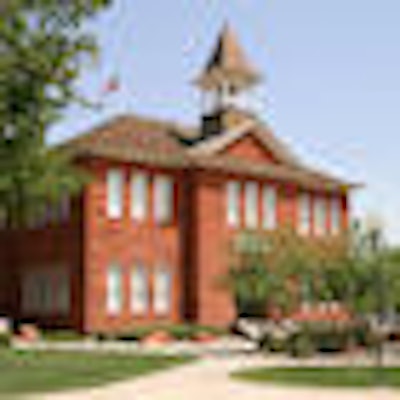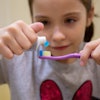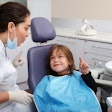
After the Louisiana Senate Health and Welfare Committee unanimously agreed to send a bill that seeks to regulate school-based dentistry to the Senate last week for consideration, the Senate just as quickly and overwhelming passed the bill today. It now goes back to the House for final review before heading to the governor's desk.
The bill bears little resemblance to the original proposed legislation, which set out to ban most mobile dentistry in the state's schools.
In its latest iteration, H.B. 687 -- which was passed by the Louisiana House of Representatives on June 4 -- now directs the state dental board to establish rules and guidelines for school-based dentistry, and to do so before the end of the year. Once the board has developed those rules, they will then go back before the legislature for consideration.
“Inherently, mobile dental vans cannot meet the standards of dental home care.”
— Ward Blackwell, executive director,
Louisiana Dental Association
In a committee hearing June 17 that lasted two hours and included testimony from both sides, the key issue was once again quality of care versus access to care.
"We are trying to ask the Louisiana dental board to address some concerns that have not been addressed," said Rep. Kevin Pearson (R-Slidell), who authored H.B. 687. "This is not a bill about restricting or limiting dentistry, but about ensuring safe and effective quality dentistry for the children."
Ward Blackwell, executive director of the Louisiana Dental Association (LDA), agreed, noting that the LDA supports the dental home concept, with quality care being provided throughout a child's life beginning at age 1.
"Inherently, mobile dental vans cannot meet the standards of dental home care," Blackwell said. "We need to make sure they are stringently regulated in those instances where they need to be used as a means to increase access to care."
Much of Wednesday's debate, in fact, centered on the need for the state dental board to develop such regulations in a more timely manner. The board claims it has been working to do just that.
"We were the first state in the South to adopt mobile rules and regulations, 15 years ago," said Barry Ogden, executive director of the Louisiana State Board of Dentistry. "When we first drafted our mobile dental rules, they only pertained to nursing homes. It didn't dawn on us that dentistry would be provided in schools. We only learned of it last December."
Since then, Ogden said, the state board has drafted new rules relating to school-based dentistry, and an emergency meeting of its rulemaking committee has been called for July 10, with another set for August 13.
"Our next board meeting is August 14, and we hope to adopt a set of rules for promulgation then," he said.
But if that were the case, asked Sen. Cheryl Gray Evans (D-New Orleans), "given the fact that the board has the authority to make the rules, explain to me why we are here today with this legislation?"
Trying to get the board to "speed up," responded Rep. Pearson. "I don't want to see us in the same place a year from now."
The issue of regulation brought a flurry of testimony from those opposed to H.B. 687, with several people expressing concern that requiring every site to be inspected before care could be provided by a mobile dentist would put up yet another barrier to providing emergency services to "vulnerable populations."
"The inspection idea is going to delay what we are already involved in and cause a slowdown of services for children who are already in need of care," said Sue Catchings, CEO of the nonprofit Health Care Centers in Schools in Baton Rouge, which provides medical and dental care in school-based clinics to some 45,000 children. "Who will perform the inspections, and what will they charge?"
Schools no longer indemnified
Other debate centered on a provision in the bill that would indemnify the schools and put all liability on the dentists. "If the schools had some liability [when authorizing a mobile dentist to come to their campus], they might view the whole process differently," Sen. Gray Evans noted. "It seems to me that if we are worried about the quality of care, the school or school board should have some liability," she said.
After further discussion, the committee agreed to remove the language regarding indemnification of the schools.
The issue of parental consent and participation prompted further debate, with proponents of the bill arguing that parents should be present during treatment to ensure that adequate medical history is obtained and treatment options discussed. In addition, Sen. Yvonne Dorsey (D-Gardere) expressed concern that because the consent forms are sent home with the children to be signed by their parents prior to treatment, verifying who actually signed the form would be difficult.
"Unregulated school-based dentistry without parent participation is Third-World medicine," stated Claudia Cavallino, D.D.S., a Louisiana pediatric dentist who favors H.B. 687. "They deserve ongoing dental care throughout their lives, and this is best served through the dental home model."
But Greg Folse, D.D.S., whose Big Smiles company employs 15 dentists to treat mostly indigent children in Louisiana schools, noted that "even on the Web sites of proponents of this bill, they say it is better for the parent of a child over age 5 not to be in the room. I would imagine if a parent hadn't signed our consent and we saw a child for services, it would be brought to our attention. But that has never happened, and we've seen 4,500 children."
At the end of the two-hour debate, the committee approved the bill without objection and only one minor language change. Not everyone was pleased, however.
"There has been a lot of rhetoric in this debate, that this is unclean, unsafe, Third-World dentistry, and that is just not true," Dr. Folse said. "All dentists who work for me are bound by our professional ethics to provide quality care. I don't think we need legislation to micromanage what the board is already doing. Let them do their job."
Copyright © 2009 DrBicuspid.com



















